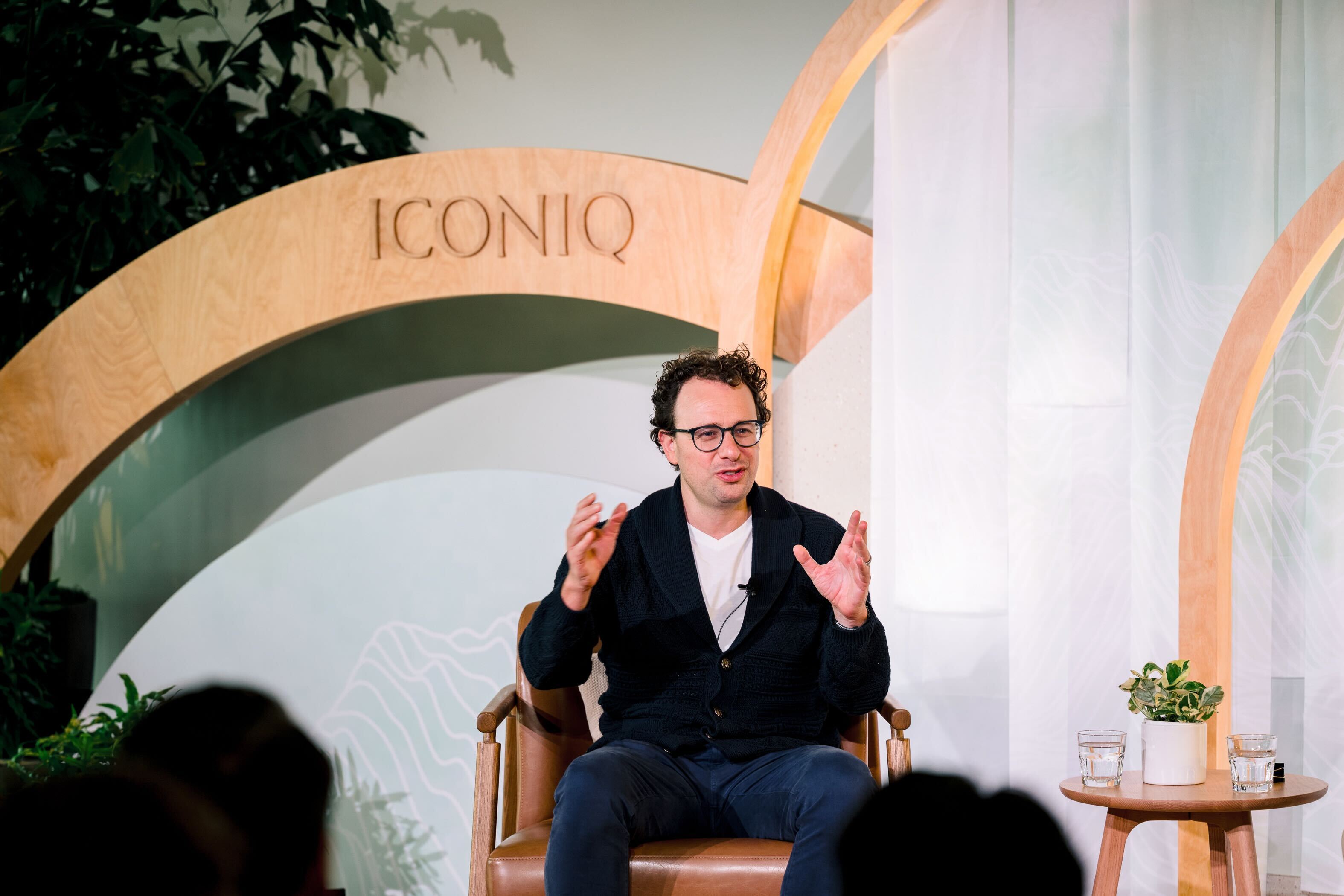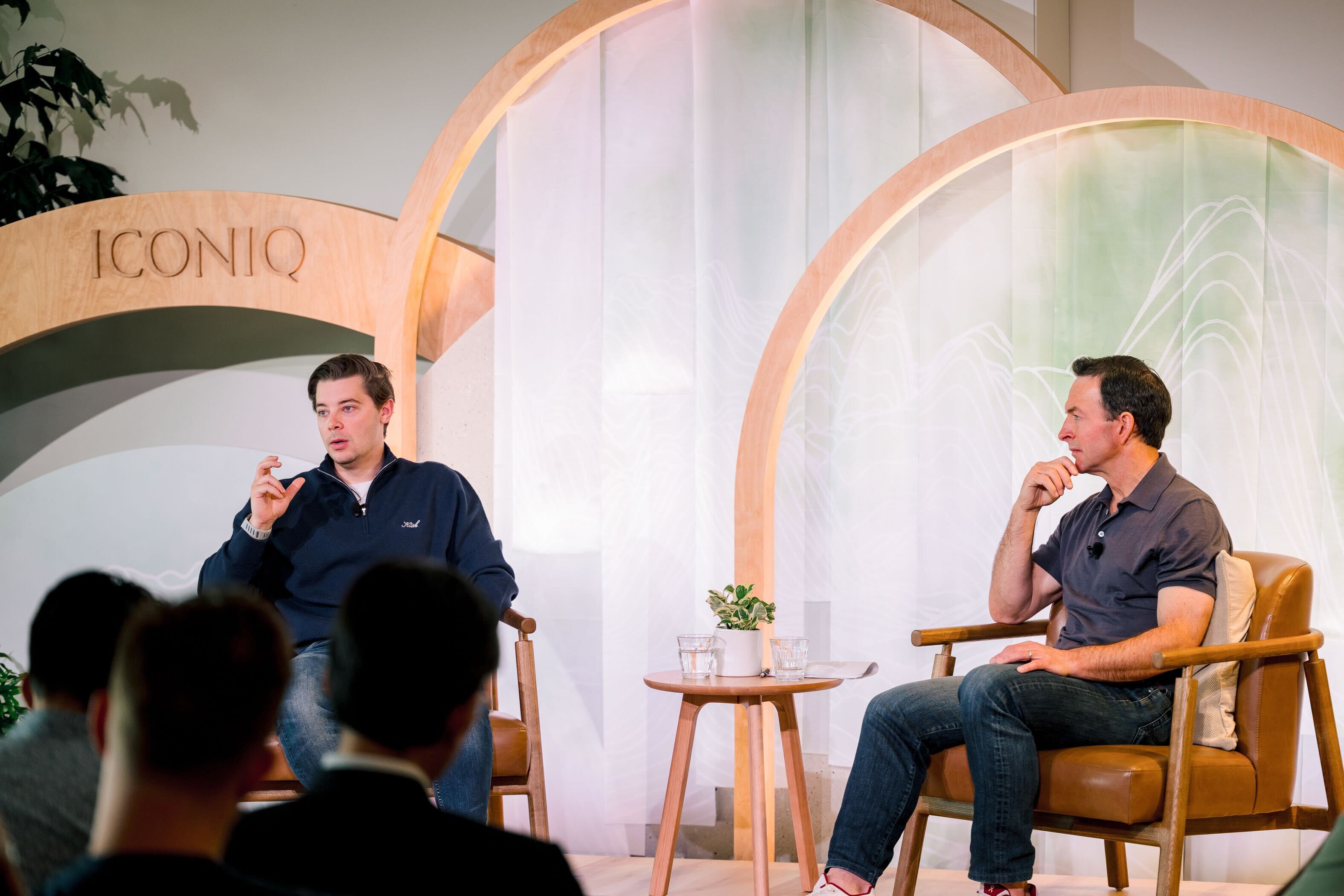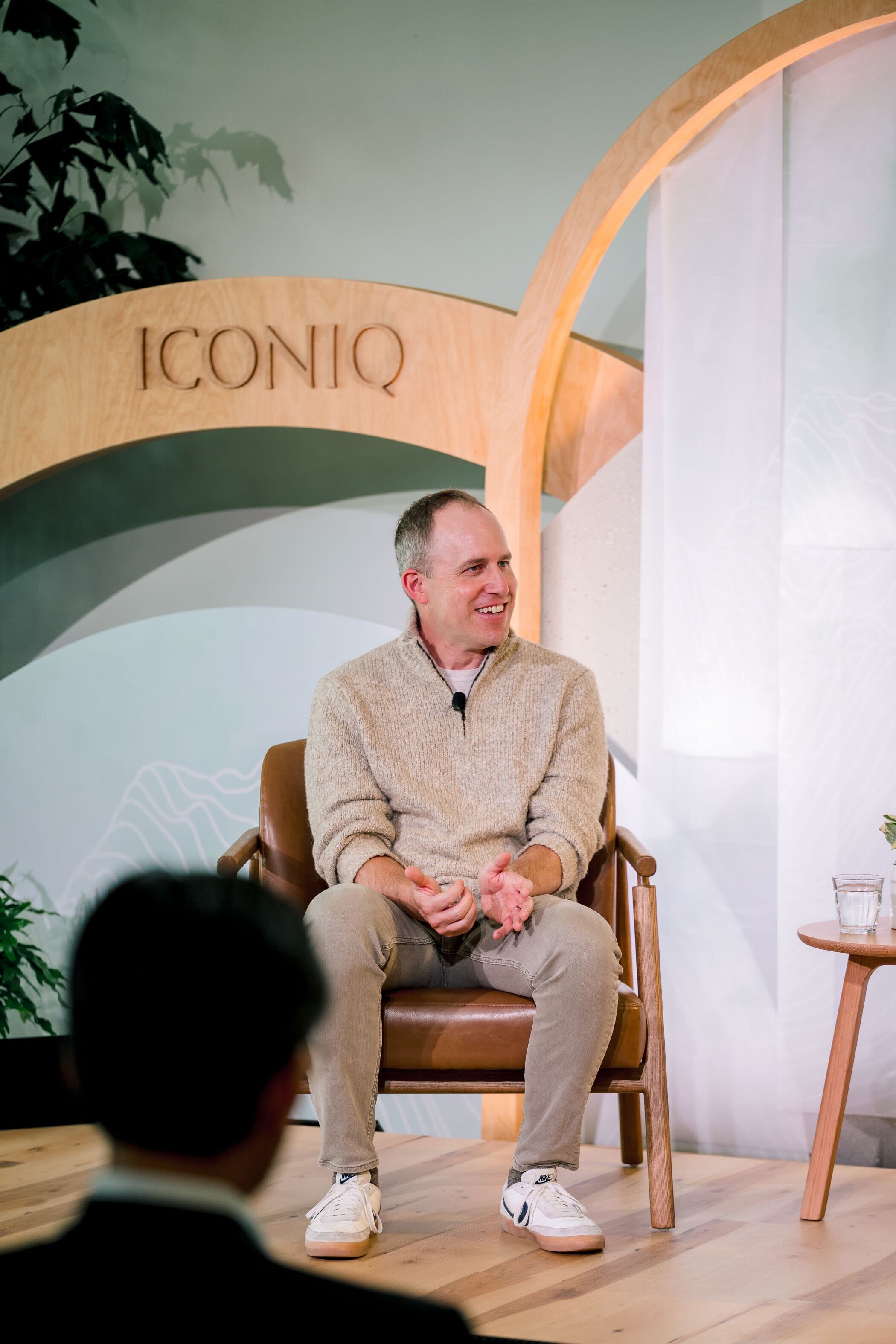What does it take to build at the frontier of AI? That question brought the ICONIQ Community together late last month for ICONIQ Frontier, a daylong forum with the leaders helping shape this next era.
Across keynotes and conversations, speakers echoed one idea above the rest: The most powerful force shaping AI isn’t technical, it’s human. How we lead, apply, and scale this technology will decide whether it unlocks new potential or just speeds up the status quo.
Here are some highlights from the day:
- Some speakers believe Agentic AI is coming fast and is poised to drive sweeping change across industries. Dario Amodei, CEO of Anthropic, shared a powerful signal: We’re entering a new phase, from chatbots to agents. These are AI systems that can reason, take action, and collaborate on their own. The shift, he noted, isn’t just technical. Its impact extends from product design to deployment, governance, and safety. He argued that in the enterprise, trust will be the true differentiator.
- Brad Lightcap, COO of OpenAI, expressed that enterprise adoption will arrive in waves, not headlines. He made it plain: “The enterprise moment hasn’t happened yet.” While AI is transforming consumer behavior and creative workflows, most companies are still at the starting line. That doesn’t mean it’s slow, it means it’s distributed. “There won’t be one ChatGPT moment in the enterprise,” Lightcap said. “It’ll be a collection of small ones.” He urged founders to stay close to the shifting substrate. “The rules that used to govern startups feel archaic now,” he said. “The winners will be those who thrive in chaos.”
- The next keyhole to AGI may be spatial, expressed Fei-Fei Li, CEO of World Labs, who looked toward spatial intelligence. She argued that LLMs represent only part of what’s possible. “Language is one of the keyholes [to AGI],” she said. “Spatial intelligence is another.” Her team is building foundation models for 3D reasoning with early applications in design, robotics, healthcare, and immersive therapy. Her vision is clear: “AI should make us not just more productive, but more human.”
- Bret Taylor, co-founder and CEO of Sierra, pulled the conversation back to first principles: AI is not the product, it’s the mechanism to deliver value. “The best companies will solve real problems,” he said. “And they’ll do it with exceptional products and outcomes-based models.” Taylor predicted a shift in enterprise pricing, from seats to outcome-based. He also emphasized trust and simplicity as the next-generation moats, especially as voice becomes a dominant interface. “If the cost of a phone call drops to the cost of a page view,” he said, “how would you think about voice as a channel?”
- Arvind Jain, CEO of Glean, and Rob Lee, CTO of Pure Storage, unpacked how enterprise AI is evolving from standalone apps into essential infrastructure. Jain described the rise of the “enterprise brain,” a unified layer that connects systems, teams, and data. Lee emphasized that governance, security, and interoperability aren’t blockers, they’re accelerants. “Strong architecture is what makes real transformation possible,” he said. Their message: AI’s real impact comes from integration, not invention. The systems that matter will be durable, connective, and trusted.
- Other speakers highlighted that agentic systems will only work if humans stay in the loop. May Habib, CEO of Writer, and Deep Srivastav, Chief AI Officer at Franklin Templeton, explored the rise of agentic workflows, systems that embed into business processes and adapt in real time. Instead of replacing jobs, these agents encode the logic of how a company works and reflect it back, faster and more flexibly. “It’s a radically simpler enterprise,” Habib said. “But only if you train your teams and tools to think together.” Habib and Srivastav shared measurable gains in compliance, product development, and research, highlighting Franklin Templeton’s leadership in deploying agents in a regulated, real-world environment. It’s a challenging step, but a defining one for scaling human-in-the-loop systems.
- Max Junestrand, CEO of Legora, shared how speed became a strategy. Junestrand’s approach: deep customer immersion, rapid iteration, and full-stack ownership. “Momentum is our moat,” he said, echoing Brad Lightcap earlier in the day. Junestrand described how working hand-in-hand with customers early on allowed Legora to build trust and embed directly with legal teams, helping the company scale adoption across 6,000 lawyers in just over a year. In addition to enhancing workflows, Legora is helping some law firms adapt their business models in the AI era. “One of the firms we work with has moved to a subscription model,” he said. “You get access to all the low-level work, and when you need high-end advice, you pay for it. It takes bold partners to do that.”
At ICONIQ, we left Frontier energized by what’s ahead and grounded in what it demands.
We believe the next era of AI won’t be defined by breakthroughs alone, but will be shaped by the questions we ask, the speed at which we adapt, and the values we embed along the way. How do we accelerate adoption without losing control? Where is value truly created and who benefits?
What does real progress look like when we put people first?
Coming away from the event, it was clear that the future of AI won’t write itself. It’s ours to build, with intention, with integrity, and with care.
Published:
October 22, 2025







.png)
.jpg)

